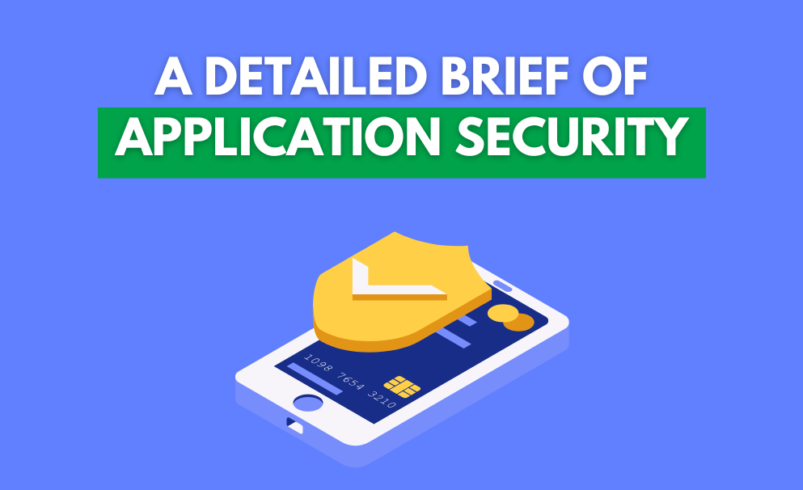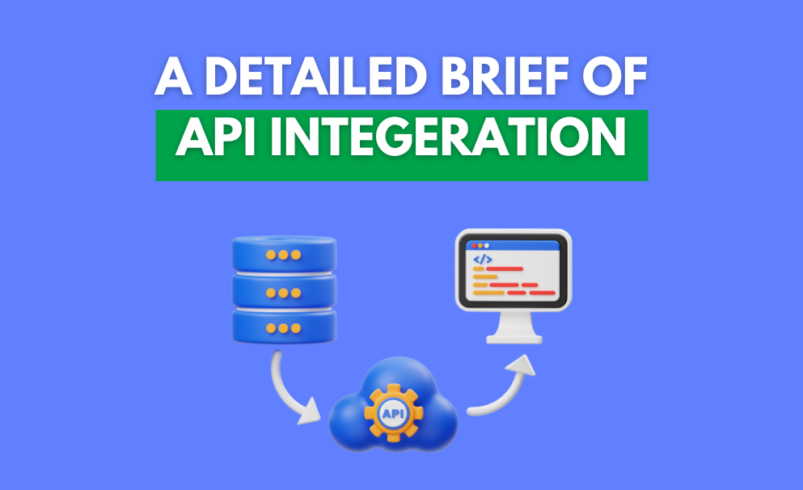
A Detailed Brief of Application Security
In an increasingly digital world, application security is paramount for protecting sensitive data and maintaining user trust. Understanding the fundamentals of application security, its benefits, and best practices can significantly enhance your business’s resilience against cyber threats. This detailed brief explores the essentials of application security, its applications, and strategies for effective implementation.
1. What is Application Security?
Application security encompasses the measures and practices used to protect applications from threats and vulnerabilities throughout their lifecycle. It involves integrating security features during the development process and continually monitoring and updating applications to safeguard against potential risks.
2. Why is Application Security Important?
Application security is crucial for several reasons:
- Data Protection: Ensures that sensitive data is secure from unauthorized access and breaches.
- Regulatory Compliance: Helps businesses comply with industry regulations and standards.
- Reputation Management: Protects your brand’s reputation by preventing security incidents.
- Customer Trust: Builds and maintains trust with customers by ensuring their data is safe.
- Business Continuity: Prevents disruptions caused by security breaches and maintains smooth operations.
3. Key Components of Application Security
Application security involves several key components and practices, including:
Secure Coding Practices
Secure coding involves writing code in a way that minimizes vulnerabilities. Best practices include:
- Input Validation: Ensuring that all user inputs are validated to prevent injection attacks.
- Error Handling: Implementing proper error handling to prevent information disclosure.
- Authentication and Authorization: Ensuring that users are properly authenticated and have the correct permissions.
Encryption
Encryption protects data by converting it into a secure format. This includes:
- Data at Rest: Encrypting stored data to protect it from unauthorized access.
- Data in Transit: Encrypting data transmitted over networks to prevent interception.
Vulnerability Management
Regularly scanning applications for vulnerabilities and promptly addressing them is crucial. This involves:
- Static Analysis: Analyzing source code for security vulnerabilities.
- Dynamic Analysis: Testing running applications for vulnerabilities.
- Patch Management: Applying updates and patches to fix known vulnerabilities.
Access Control
Access control ensures that only authorized users can access specific resources. This includes:
- Role-Based Access Control (RBAC): Assigning permissions based on user roles.
- Multi-Factor Authentication (MFA): Using multiple authentication methods to verify user identity.
Security Testing
Regular security testing helps identify and mitigate vulnerabilities. This includes:
- Penetration Testing: Simulating attacks to identify and fix vulnerabilities.
- Security Audits: Conducting comprehensive reviews of security practices and configurations.
4. Benefits of Application Security
Investing in application security offers numerous benefits:
- Protection Against Threats: Safeguards applications from various cyber threats.
- Regulatory Compliance: Helps meet industry regulations and avoid penalties.
- Customer Confidence: Enhances customer trust by ensuring their data is secure.
- Reduced Costs: Prevents the financial losses associated with data breaches.
- Competitive Advantage: Demonstrates a commitment to security, attracting security-conscious customers.
5. Applications of Application Security
Application security is vital across various industries and applications, including:
Finance
- Online Banking: Protecting online banking platforms from fraud and breaches.
- Payment Systems: Securing payment gateways and transaction processing.
Healthcare
- Patient Data: Ensuring the confidentiality and integrity of patient health records.
- Medical Devices: Securing connected medical devices from cyber threats.
E-Commerce
- Customer Data: Protecting customer information and transaction details.
- Inventory Management: Securing inventory management systems from unauthorized access.
Government
- Citizen Services: Protecting sensitive citizen data and government applications.
- Critical Infrastructure: Securing critical infrastructure from cyber-attacks.
Education
- Student Records: Ensuring the security of student records and educational resources.
- Online Learning Platforms: Protecting online learning platforms from cyber threats.
6. Best Practices for Application Security
To achieve optimal results with application security, follow these best practices:
- Implement Security Early: Integrate security measures from the beginning of the development process.
- Regularly Update and Patch: Keep applications up-to-date with the latest security patches and updates.
- Educate and Train: Ensure that developers and staff are educated about secure coding practices and security awareness.
- Monitor and Respond: Continuously monitor applications for security threats and respond promptly to incidents.
- Conduct Regular Audits: Regularly audit security practices and configurations to identify and address weaknesses.
7. The Future of Application Security
Application security is constantly evolving, with new trends and technologies shaping its future. Key trends to watch include:
- Artificial Intelligence (AI) and Machine Learning (ML): Using AI and ML to detect and respond to security threats more effectively.
- DevSecOps: Integrating security practices into DevOps processes for continuous security.
- Zero Trust Security: Adopting a zero-trust approach that verifies every access request, regardless of its origin.
- Cloud Security: Enhancing security for cloud-based applications and services.
- IoT Security: Securing the growing number of Internet of Things (IoT) devices and applications.
Conclusion
Application security is essential for protecting sensitive data, maintaining regulatory compliance, and ensuring business continuity. By understanding the key components of application security and implementing best practices, businesses can safeguard their applications and build strong, trustworthy brands. At EZ Brand Builders, we specialize in helping businesses enhance their application security to achieve their digital goals and protect their valuable assets. By investing in high-quality application security, businesses can stay competitive in the rapidly evolving digital landscape and drive sustained success.









